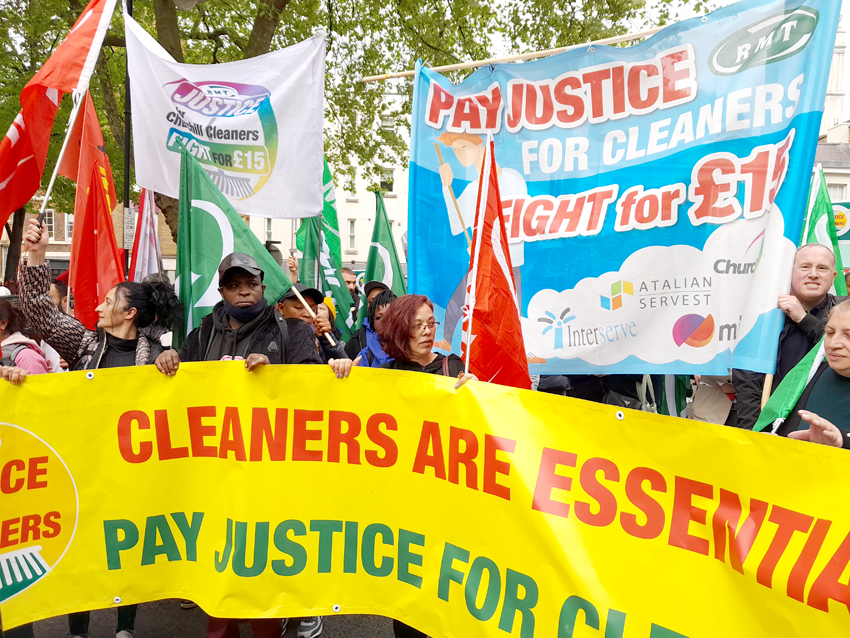
PM JOHNSON said yesterday in Blackpool: ‘Today we are living in the aftermath of the worst pandemic for a century, and once again we are steering into the wind.
‘We face global pressures on prices caused by the lingering effects of Covid and the shock of Putin’s aggression in Ukraine.
‘We will get through it, we will get through it just as we got through the far greater challenge of covid, and the colossal fall in output that entailed.’
He tried to assure his audience: ‘People don’t face the misery of the 1980s or 1990s.’
However he admitted: ‘The increases in the cost of food, the spooling digits on the petrol pumps, energy bills growing seemingly ever larger.
‘Much of this has been driven by problems in global supply chains that followed the pandemic.
‘The sudden surge in demand for gas from China, the world shortage of container ships.
‘Six months ago, there were good reasons to hope that the laws of supply and demand would start to operate, and that these problems would begin to abate.’
However: ‘That progress was brutally interrupted on 24th of February, when Putin decided on his disastrous and unprovoked war in Ukraine.
‘World markets have responded with a significant spike in prices, partly driven by sanctions, partly by the elevated risk premium – the inevitable increase in what businesses have to charge to compensate for raised global levels of uncertainty.’
He admitted: ‘The price of oil and gas looks likely to remain high for a while to come, and the same goes for grain and feed and fertiliser.
‘I know that there are some who argue – not in this country perhaps but elsewhere – that the price of supporting the Ukrainians is now too high.
‘And they should be encouraged to accept whatever terms Putin may ask.
‘I don’t believe that option is really open to us.’
He said of Putin: ‘He will never succeed in subduing Ukraine, and the sooner he comes to that understanding the better.
‘But nor should he be allowed the partial success of swallowing some of the country – as he has done before – and declaring a ceasefire.’
He added: ‘To encourage a bad peace in Ukraine is to encourage Putin and to encourage all those around the world who believe that aggression pays.’
He spoke in favour of continuing the war: ‘I say this because I do not believe there is a quick fix in Ukraine, and because we must continue to support the Ukrainians – as we have from the beginning – for as long as it takes.’
He insisted: ‘At the same time we must face some realities.
‘The first is that no Government in the world can afford to use taxpayers’ money to shield everyone completely from the increased costs caused by powerful global forces.’
He pledged austerity: ‘We will get the right balance between spending what we can afford now and ensuring there’s a healthy economy to look forward to when pressures abate.’
‘Universal support’ is to be curbed ‘while some support will of course be universal, the bulk will be targeted at those who need it most.’
He added on austerity: ‘The second reality is that when you face inflationary pressure, you can’t just spend your way out of it.
‘On the contrary, you have to be careful not to add to inflationary pressure.’
He added on austerity: ‘We are constrained in what we can do not just by the fiscal position – the risk of borrowing too much – but by the risk that we will fan the flames of further price increases.’
He insisted: ‘That we cannot fix the increase in the cost of living just by increasing wages to match the surge in prices …’
He warned: ‘If wages continually chase the increase in prices, then we risk a wage-price spiral such as this country experienced in the 1970s – stagflation – that is inflation combined with stagnant economic growth …’
‘We are already spending £83 billion this year alone in servicing our debts.
‘Every extra percentage point in interest payments is another £21 billion that has to go on paying lenders for our borrowing.’
It is to be austerity and cuts!
He remarked: ‘Far too many hospital beds are occupied by patients who could be better cared for elsewhere.
‘We’re investing in education, huge sums in defence, in the agenda on which this government was elected, to unite and level up across our country.’
He pledged: ‘The overall burden of taxation is now very high – and sooner or later, and I would much rather it was sooner than later, that burden must come down.’
He advised: ‘But sometimes the best way that government can help is simply to get out of the way. To do less or better, or simply not at all.’